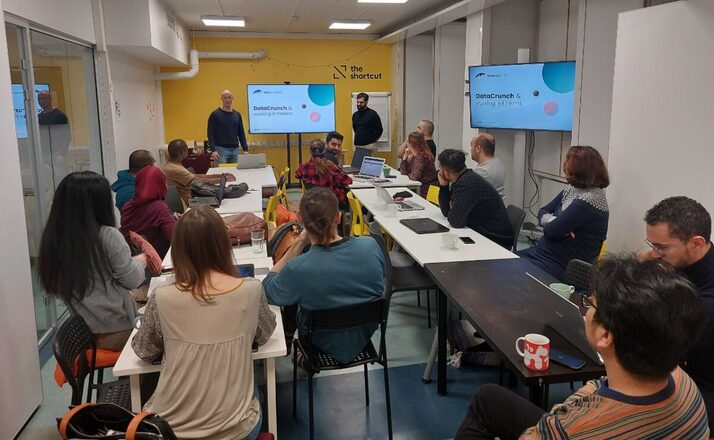
DataCrunch, a Helsinki-based high-performance AI infrastructure provider, has raised €55 million in Series A funding as it aims to become Europe’s first AI cloud hyperscaler and reduce the continent’s dependence on US tech giants. With the fresh capital, DataCrunch intends to grow its workforce, expand its infrastructure footprint, and enhance its service offerings.
The round was led by Finnish investors including Tesi, Skaala, and the Varma pension fund, joined by J12 Ventures and several angel investors. Debt financing was provided by Danske Bank, Norion Bank, Local Tapiola, Nordea, and Armada Credit Partners. With this latest raise, DataCrunch has secured €76.5 million in total funding since its founding in 2020.
The company positions itself as a European alternative to Amazon, Google, and Microsoft, which currently dominate nearly 70 percent of the region’s cloud market. According to co-founder and CEO Ruben Bryon, the choice for European enterprises is increasingly stark: continue depending on foreign cloud providers or invest in local infrastructure that guarantees data sovereignty and compliance with EU regulations.
Mr. Bryon argues that the combination of regulatory, technical, and environmental pressures has created an opportunity for a regional provider like DataCrunch to expand rapidly.
DataCrunch specializes in delivering affordable GPU-based cloud solutions for AI training and inference. Its platform is designed to simplify access to compute clusters optimized for advanced AI workloads, enabling enterprises, startups, and research institutions to scale from experimentation to production more easily. Current customers include Sony, Freepik, Schibsted, 1X, Unbabel, and several academic organizations. The company was also among the first worldwide to deploy NVIDIA’s HGX B200 systems and plans to incorporate the upcoming B300 and GB300 models into its infrastructure.
Central to DataCrunch’s strategy is a proposed AI gigafactory in Latvia, for which the company has submitted a plan to the European Commission. The facility, envisioned in collaboration with the Latvian government and foreign investors, would deploy approximately 100,000 AI accelerators dedicated to model training and inference.
According to DataCrunch, the project would run on renewable energy and supply startups, SMEs, and research institutions across the EU with secure, regulation-compliant compute resources. The proposed design is modular, allowing for future expansion into other EU member states and accommodating additional partners.
Sustaitability Commitments
Henrik Rosendahl, a board member at DataCrunch, emphasized the broader significance of the company’s ambitions. He noted that as AI becomes integral to enterprise operations, businesses in Europe increasingly seek infrastructure providers that align with sustainability commitments while navigating complex regulatory landscapes. He positioned DataCrunch as a firm capable of delivering on both requirements, while also offering state-of-the-art computing performance.
The funding announcement comes amid forecasts that Europe’s AI industry could grow to $1.4 trillion by 2033. Yet despite the sector’s rapid expansion, European cloud infrastructure lags behind. Local providers account for only a fraction of the market, leaving enterprises dependent on non-European hyperscalers and raising concerns over costs, compliance, and long-term sovereignty. DataCrunch’s mission is to close this gap by offering a scalable, secure AI cloud rooted in European governance and energy policy.
The company has already begun rolling out features that put it in closer competition with global incumbents. Recent product launches include Instant Clusters for distributed AI workloads, which industry analyst SemiAnalysis ranked on par with Google Cloud in its GPU Cloud ClusterMAX rating system. DataCrunch also offers serverless containers designed for large-scale inference workloads, capable of handling hundreds of millions of monthly requests with low latency. Upcoming additions to the platform include managed Kubernetes services for cluster orchestration, regionally distributed object storage, and managed inference endpoints optimized for generative AI models. Enhancements in network automation, API design, Identity Access Management, and broader operating system support are also planned.
For Bryon and his team, the funding represents more than just financial backing; it is a strategic step toward building a cloud platform that reflects Europe’s priorities in data protection, sustainability, and innovation. If successful, DataCrunch could not only provide enterprises with cutting-edge computing power but also serve as a cornerstone for Europe’s efforts to establish digital sovereignty in an AI-driven era.


